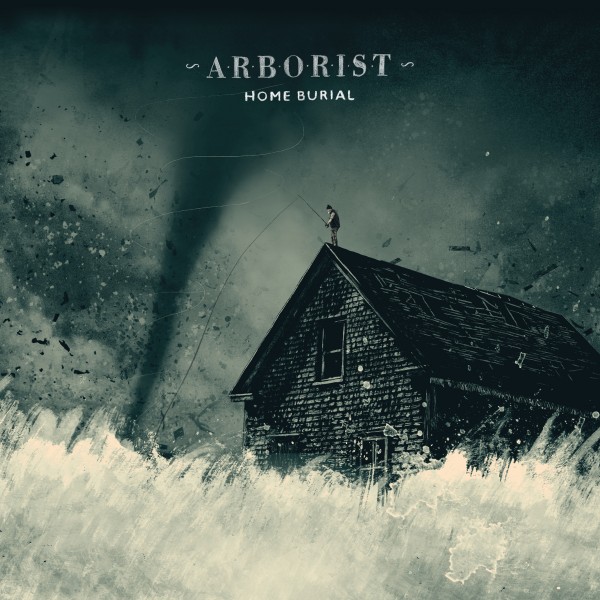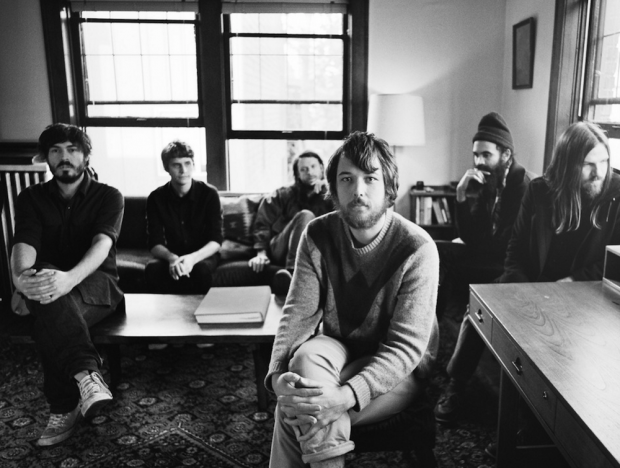If there is a unifying and constant sensation which runs throughout Arborist‘s Home Burial like some arterial chord it is that of gloom. A cursory glance at the cover art paints a startlingly accurate depiction of what the next 40 odd minutes entails: a gothic, rustic farmhouse sits against a grey, unsettled sky with an impending destructive force looming on the horizon. While it looks like the sort of place Robert Smith might spend a Summer holiday, it does set the stage perfectly. This is not an album of joy, redemption, and salvation, it’s forlorn expedition through the emotional wilderness as our guide desperately clings to any lingering comfort. Musically, it is baroque horns and strings melded with alt-country trappings based around minor keys. When Arborist allow their theatrical, Brontë gothic inclinations to lead the charge, it amounts to a tantalising concoction of sorrow and serenity, but sadly the emphasis here is on gentle, calmer folk ballads, which although still interesting lack the heft and power of the more bombastic efforts.
The album peaks quite early with “A Crow”, a real gem that begins the proceedings. In spite of its brevity, it is one that succinctly summarises what works about this release. The chief instrument is the piercing strings which act as an unwavering siren, alerting the listener to their presence yet stopping them from getting too comfortable. They possess the same tension that makes that exists on the best of Nick Cave’s soundtrack work. It is contrasted with a booming bass heavy piano that envelops the piece in a nearly impenetrable sheen of foreboding. The only relief offered is Mark McCambridge’s howl, which feels akin to a madman wailing into the wind for any hint of response to the unanswerable question . It’s a truly stellar piece, the kind which the group could and should comfortably hang their hat on. But alas, this is a single flash of genuinely great songwriting and the rest of the record falls into a much safer, subdued space.
One of the chief issues with Home Burial is that the band plays it safe for so much of it. There are ten additional pieces, while they’re perfectly functional, they seldom amount to anything greater than that. There is the occasional glimmer of that same magic on the likes of ‘The Master’ and ‘The Broken Light’, but mostly the tracks fall into this safe and unchallenging standard folk sound. There is an abundance of darkness and misery, which is somewhat atypical for this genre, but it isn’t dark enough to stand out from the crowd. These are heavy emotional topics being dealt with and they’re never given the music to match. There is a way of managing bombast and fragility which Arborist demonstrate they can do, but they keep rolling back to this understated point, which hobbles their output; they don’t want to be low-key, they yearn for drama. Ultimately, the songs are all acceptable, and in some cases quite good, but there is this immutable sense of things being half explored and a tad unfinished. Will Murphy






